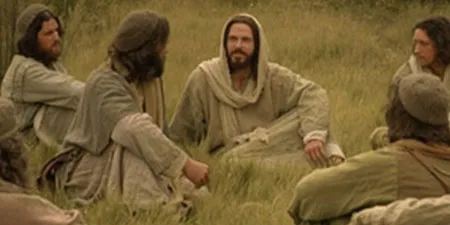Meditation
for the Twenty-First Sunday in Ordinary Time, Year A
(Is
22:19-23; Rm 11:33-36; Mt 16:13-20)
When Jesus came to the district of Caesarea Philippi, He
asked His disciples, “Who do men say that the Son of man is?” Jesus did not ask
this question for personal validation. It was for the good of the disciples,
for their personal reflection, and for them to sieve off the popular ideas
about Jesus that sounded great but not true. Popular and trending notions are
quite attractive, such that the disciples seemed to have settled for some of
them. They answered Jesus, “Some say John the Baptist, others say Elijah, and
others Jeremiah or one of the prophets.” Often times, popular opinions do not
attract the kind of personal commitment that faith requires. A faith that is
based only on the opinions of others about Jesus or based on our human contingent
needs may not preserve to eternity.

Hence, Simon Peter replied, “You are the Christ, the Son of
the living god.” Jesus answered him, “Blessed are you Simon Bar-Jona! For flesh
and blood has not revealed this to you, but my Father who is in heaven.” Peter’s
openness to the divine revelation about Jesus Christ gives him such experience
of faith that sets him apart from the crowd and popular opinion. There is a height
of faith we cannot climb unless we have such experience that is rich in wisdom
and knowledge and is unsearchable. As Jesus declared Peter the rock on which
the Church is built, we see how the human agency can prevail against evil if it
is open to divine revelation. Standing secure on the authority of Peter the Rock,
the Church exercises the power of the “Keys of the kingdom of heaven” for the
salvation of all.
The prophecy of Isaiah in the first reading is here
fulfilled. Through the Church standing on the rock, we have been confirmed and
sealed in divine grace. Evil cannot defeat those standing on the authority of
the keys. Thus, the Church is constantly alive and anew to all generations
because she is fed by divine revelation. Through the Church, the riches of God’s
wisdom and knowledge is constantly made available to us. This is how we remain
firm in faith, at the same time we are enriched and renewed in faith and
knowledge of Jesus Christ. And as we grow in knowledge of Jesus, we deepen our
self-awareness and understanding of one another. Therefore, the answer to the
question of Jesus: “Who do you say that I am?” leads to grow in understanding
ourselves and our neighbor, and to draw us to that depth of faith is authentically
personal and at the same time witness to divine revelation. Amen.
Fr Jude Chinwenwa Nwachukwu, C.Ss.R
Saints Peter and Paul Catholic Church,
Tedi-Muwo, Ojo, Lagos.
Sunday August 27, 2023.